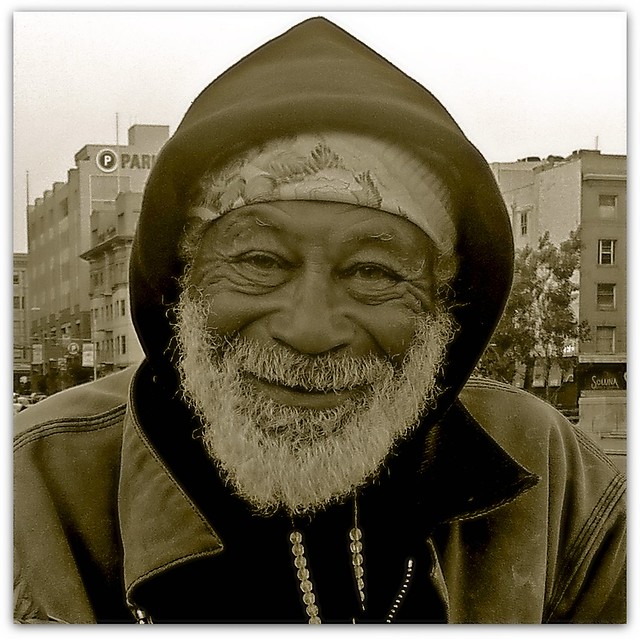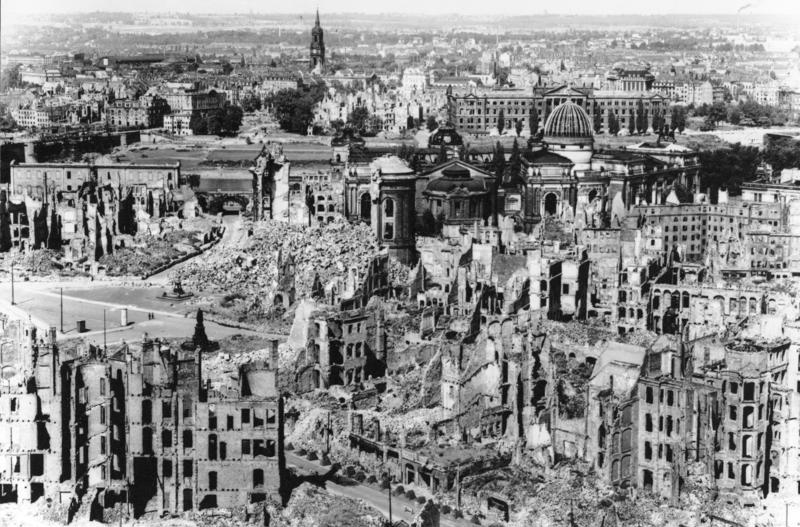Tuesday, July 31, 2012
Chapter 5 - Dignity
A recurring theme I came across in chapter five was the concept of the loss of human dignity. Vonnegut was sure to present the soldiers of not maintaining dignity while under pressure of real war, for not doing so would be to romanticize war - the opposite of the novel's concept. The allied POW had been mocked, "cooed" at, and degraded. Billy had even been told by a British soldier that the the coat he received from the German's was actually an insult. "It was a deliberate attempt to humiliate you." The Americans are also insulted by their allies, the British, for their illness. The irony is, however, that the British were the ones that gave the American's their illness from the feast they had prepared. Also contributing to the loss of dignity, Vonnegut speaks in first person for the first time since chapter one. Vonnegut talks of an American in the latrine that nearly wailed everything out of his body, including his brains. He then responds, "That was I. That was me. That was the author of this book." By including himself in the complete loss of dignity, Vonnegut is clearly expressing the idea that war brings about the most brutal loss of dignity to even the most gracious of people.
Chapter 5 - Rhetorical Questions
After muttering something a guard apparently did not like, the American POW was knocked down. Scoffing at the American's questioning, the guard simply responds "Vy you? Vy anybody." The rhetorical question was meant to make American feel powerless and weak, and that he was under total submission. The Germans could choose to beat anyone they pleased because the POW could not fight back, as they were powerless. This confrontation was meant to parallel the Billy's earlier confrontation with the tralfamadorians. "Why you? Why us for that matter? Why anything?" This was meant for Billy to see how submissive he really is to time and space. Moments in the future are already set to happen, and Billy cannot control this because the choices have been made. It also represents Billy's start in time travel as he beings to break away from the earthling restraints of time.
Chapter 4 - Jurassic Park
Chapter four begins Billy's full recollection of the events that occurred on the night of his abduction. He recounts new ideas and thoughts expressed to him by the tralfamadorians. When Billy questions why he was chosen, the tralfamadorians use the analogy of comparing the reasoning to bugs trapped in amber. They were "trapped in the amber of the moment. There is no why." Just as bugs happen to be stuck in the amber, Billy was stuck in the moment that the tralfamadorians came for him. This was always meant to happen because it did happen. When the 'bugs in amber' was mentioned, I was reminded of Michael Crichton's Jurassic Park. In the novel, dinosaurs are genetically recreated with the use of mosquitoes that have been stuck throughout time in amber. The dinosaur DNA was preserved in the misquitoes enabling clones to be made of the dinosaurs from which the DNA was taken. Just like Billy, the dinosaurs had become unstuck in time accompanying the tralfamadorian philosophy that there is no past, present or future. There simply just is.
Chapter 4 - Orange and Black
"The locomotive and the last car of each train were marked with a striped banner of orange and black, indicating that the train was not fair game for airplanes - that it was carrying prisoner of war."
This statement from chapter three represents the imprisonment Billy has felt in his life since the war. He had been trapped in time until he was introduced to the idea of becoming unstuck in time by the tralfamadorians. He was trapped in this state until he was taken by the tralfamadorians on the night of his daughter's wedding. Vonnegut noted in chapter four that "The wedding [Barbara's] had taken place that afternoon in a gaily striped tent in Billy's backyard. The stripes were orange and black." The orange and black tent recalls the orange and black banners from the locomotives transporting the prisoners of war. I believe this represents that Barbara is off limits to other men because she is now married; moreover, the orange and black stripes show that Vonnegut believes marriage is reminiscent of being a prisoner of war and Billy's imprisonment in life.Monday, July 30, 2012
Chapter 3 - Adam and Eve
 |
| The Garden of Eden |
Chapter 3 - Symbolism
 As I continue to read Slaughterhouse-Five, I have found that nearly every character seems to represent something else. The smaller characters especially seem to represent certain thoughts or feelings men had at war. Billy Pilgrim mentions a hobo two different times in chapter three. After being taken prisoner of war, the hobo stated "I been hungrier than this. I been in worse places than this. This ain't so bad." The hobo was added in the story to show we all need to keep moving when times are tough. He is a reminder that no matter how hard life gets, there will always be someone who has it worse than ourselves; therefore, we must always count our blessings. When Billy's train did not move for two days, the hobo spoke again saying, "This ain't bad. This ain't nothing at all." The hobo's optimism again reminds Billy and the reader to keep their head up in tough times.
As I continue to read Slaughterhouse-Five, I have found that nearly every character seems to represent something else. The smaller characters especially seem to represent certain thoughts or feelings men had at war. Billy Pilgrim mentions a hobo two different times in chapter three. After being taken prisoner of war, the hobo stated "I been hungrier than this. I been in worse places than this. This ain't so bad." The hobo was added in the story to show we all need to keep moving when times are tough. He is a reminder that no matter how hard life gets, there will always be someone who has it worse than ourselves; therefore, we must always count our blessings. When Billy's train did not move for two days, the hobo spoke again saying, "This ain't bad. This ain't nothing at all." The hobo's optimism again reminds Billy and the reader to keep their head up in tough times.
Thursday, July 26, 2012
Chapter 2 - Poet in the Parthenon
"His head was tilted back and his nostrils were flaring. He was like a poet in the Parthenon"
Vonnegut uses this simile to reveal the first time Billy Pilgrim became unstuck in time. Billy was ready to quit. His exhaustion was starting to get the best of him, and he felt that he could no longer go on. At this moment, Vonnegut describes Billy's experience as "swinging grandly through the full of his life. I find Billy's experience to be similar to that of a person who's life 'flashes before their eyes' when near death. Trying to understand why Vonnegut would pair this experience with the simile "like a poet in the Parthenon," I did a quick search. My information lead me to another "poet in the Parthenon," John Keats. After viewing images from the Parthenon, Keats formed a basis for the poem "Ode on a Grecian Urn." The poem had similar characteristics to whole idea behind Slaughterhouse-Five."What little town by river or sea shore/ is emptied of this folk/ the pious morn?/ And little town thy streets forever more will be silent/ and not a soul to tell/ why thou art so desolate/ can e'er return." Dresden, a little town by the shore, was also emptied of it's folks during the bombing, and they too will forever morn. So it goes.
Chapter 2 - So it goes
"The regimental chaplain's assistant had been killed in action. So it goes." Each a time death, dying, and mortality occur, Vonnegut accompanies the account with the phrase "so it goes." In other words - so it continues. "It" represents life which continues even though death has taken place. I believe Vonnegut uses this phrase as a comic relief, continuing both the story and his satiric voice. It is first revealed in chapter two that Billy Pilgrim received the phrase from the creatures of Tralfamadore. "Now, when I myself hear that somebody is dead, I simply shrug and say what the Tralfamadorians say about dead people, which is 'So it goes." Billy believes a person will always be alive in the past, so their death does not matter. When he becomes 'unstuck in time,' he travels to different moments of his life and experiences them. The people in these experiences are alive in his memory, so their current state has no importance. "All moments past, present, and future, always have existed, always will exist." Billy uses the insights he gained he from the Tralfamadorians to see how permanent all moments are and looks on them as he pleases.
Wednesday, July 25, 2012
Chapter 1 - Dresden.?
Due to Vonnegut's constant referencing of 'Dresden,' I decided that it would be important to research this place as a background for the rest of the novel. Starting my research with the Bombing of Dresden, I found that Dresden, the capitol of the German state of Saxony, was bombed by the British and United States Air Force, killing thousands. Vonnegut was a prisoner of war in Dresden during the time the bombing occurred. I gained a better perspective on Vonnegut's thoughts as i read his letter to his family regarding his time as a prisoner of war. He expresses the magnitude of massacre and emotional pain he was put through during his time there; however, he uses a recurring phrase -"but not me" - to show his pride in surviving multiple events in which the masses did not. In the first chapter of Slaughterhouse-Five, Vonnegut recounts events from his life such as seeing a man being squashed by a car. When asked if the scene bothered him, he replied "Heck no, Nancy, I've seen a lot worse than that in war." His unfeeling words described perfectly how Dresden had greatly shaped Vonnegut's life and how he viewed death, giving him enough material, in fact, to write a book about.
Monday, July 16, 2012
Chapter 1 - Allusion
Vonnegut gets right to the point in the first page of his novel through his mentioning of Dresden. Through this allusion, Vonnegut wants the reader to make a connection to this well-known place, foreshadowing the material that will be discussed in the following chapters. His consistent referencing of Dresden allows the reader to understand that Vonnegut expects most people to be somewhat familiar with the events that occured there. "It [Dresden Bombing] wasn't a famous air raid back then in America" (10). This allusion also helps set a solemn tone because, with the mention of it, Vonnegut recalls painful memories from his past. On his return trip to Dresden, Vonnegut noted, "There must be tons of human bone meal in the ground" (1). Vonnegut does express, however, that he is just introducing the subject, and readers will have a clearer understanding of Dresden in later chapters. He stated "i was suppsedly writing about Dresden," (10) to show that Dresden will be the topic of his novel, and he will give readers a clearer understanding as the novel progresses.
Subscribe to:
Comments (Atom)



